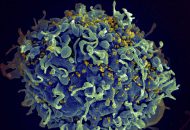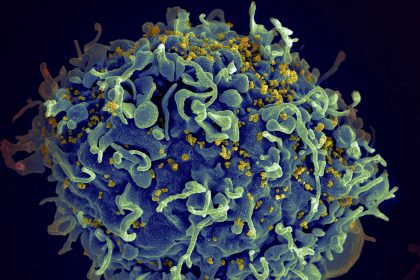Pfizer CEO Talks Vaccine Equity, Booster Needs, and Enhancements

WASHINGTON — Recent studies conducted by Pfizer-BioNTech and results of a follow-up to Phase III trials confirmed that protection against COVID-19 stays high — over 91% — for at least six months after receiving two doses of the Pfizer vaccine. Strong results like these from Pfizer and other vaccines are only increasing global demand, so the push is on to get more vaccines distributed, equitably, around the world.
“The best way to [reach herd immunity] is to stick to the goal, and that goal is vaccines for all,” Pfizer Chairman and CEO Dr. Albert Bourla told Axios at a virtual discussion Wednesday. But he also admitted that for everyone to have vaccines, two conditions must be met. First, there needs to be a price that allows everyone to pay for vaccines, and enough production to offer everyone their dose(s).
Bourla said the first step was easily accomplished under Pfizer’s definition of vaccine equity. The company instituted a tiered vaccine pricing model with wealthier countries paying the price of “a simple take-away meal,” middle-income countries given a half-off discount, and low-income countries offered the vaccine at-cost, meaning Pfizer took no profit.
“Equity is not giving everyone the same,” he said. “Equity is to give more to those who need more.”
Achieving the goal of manufacturing quantities for all was a bit more difficult. Pfizer estimates its production this year now at three billion doses, with four billion produced next year.
“These are not doses for the rich or poor, north or south, west or east. These are doses for all,” said Bourla. While wealthier nations may have received a higher allocation to start, in fact 40% — or about one billion doses — of this year’s allocation was sent to middle-and low-income countries, and he said he believes lower-income nations will be receiving the bulk of the allocation in the second half of the year.
But more doses may be necessary faster than originally imagined. Both Bourla and Dr. Anthony Fauci have admitted their anticipation for COVID-19 “booster shots” to come as soon as eight to 12 months after preliminary inoculation.
“We are in the middle of these trials,” said Bourla, though while the data could be coming soon, as well as health care authorities’ approval and recommendations, vaccine durability is not generally believed to be life long.
And this means that additional doses will need to be available — and soon — if those people fully vaccinated at their earliest opportunities could now be needing further injections as early as the beginning of Fall.
“It’s never done before it is done. This is science,” said Bourla, and since Pfizer will be manufacturing some six billion doses in the next 18 months, “I think there will be enough quantity.”
Yet still, Bourla admitted, “It’s good to have more vaccines in the market from different manufacturers.”
In the meantime, Bourla stressed that the Pfizer vaccine’s efficiency and safety is “stellar… it would be difficult to achieve better,” but that the company continues to improve the vaccine relating to its storage ability, including working on a new version that is ready-to-use and able to be stored in a normal refrigerator for up to six months.
























